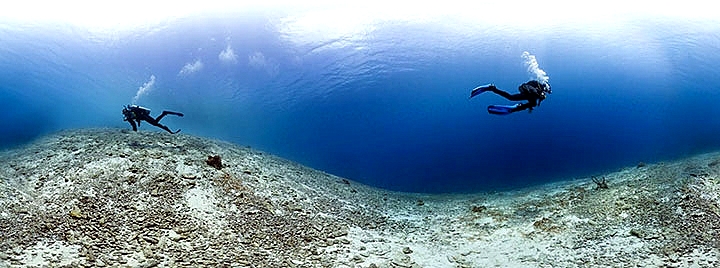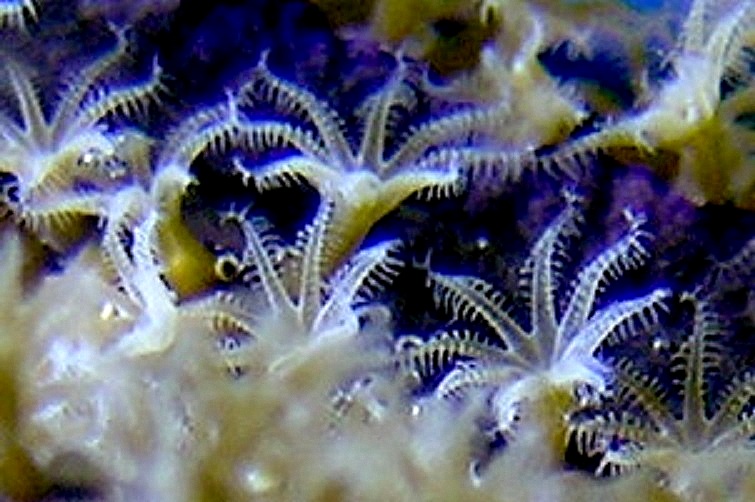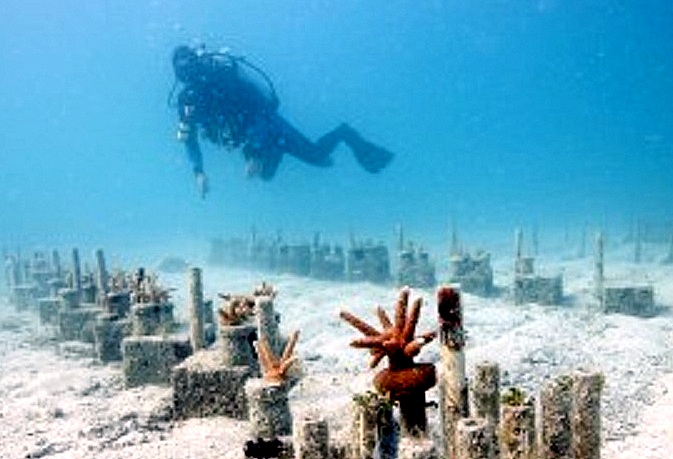Replanting Reefs...One Coral at a Time
Coral conservation license plate (credit: State of Florida)
Like the little Dutch boy who stuck his finger in a dike to stop it from bursting, a group of daring marine biologists are trying to replant coral reefs in Florida, one polyp at a time. The labor intensive, re-seeding efforts have been developed by the Mote Research Laboratory in the Florida Keys.
As this Journal and others have documented, coral reefs are endangered worldwide due to a diversity of environmental stresses including: ocean acidification due to increased CO2 gas absorption; pollution from agricultural chemical runoff; overfishing; siltation in river runoff; coral bleaching from higher water temperatures; and smothering by algae when grazing parrot fish are hunted off the reefs. The results in the Florida Keys, and elsewhere, has been reef "dead zones" where dense coral gardens once existed.

Coral "dead zone" in Caribbean (credit: Catlin Seaview Survey and IUCN)
Researchers at the Mote labs have noted that Florida has the only coral reef barrier ecosystem in the continental U.S. and they provide more then $1.2 billion dollars/year to State's economy. The benefits come from tourism, recreational and commercial fisheries, and from protection of coastal shorelines from the effects of severe storms and beach erosion.
The Lab has developed methodologies to cultivate coral polyps including how to restore them into the natural marine environment. The researchers have systems to grow hard and soft corals, sea grasses, kelps, vertebrates and invertebrates, all required for healthy reefs. They grow coral polyps---the symbiotic association of a tiny animal and a photosynthetic bacteria that build reefs---in tanks of circulating sea water. As they grow, the polyps are divided into pieces which become "seeds" for cultivating more polyps. They small corals develop far faster than they would naturally in the ocean. When ready they are transplanted onto depleted reefs. Even though the coral restoration technology "package" is experimental, the results have been exceptional and more test plantings are planned.


Coral polyps (credit: Wikicommons) Transplanted Llab-grown Corals (credit: Mote Laboratory)
In the kid's fable, the little Dutch guy saved the day by putting his finger in the dike so it didn't burst. Hopefully, the Florida reef researchers will continue their early successes so their methods can be replicated wherever coral dead zones are found. That will be a big effort but a hugely important one.
WHB